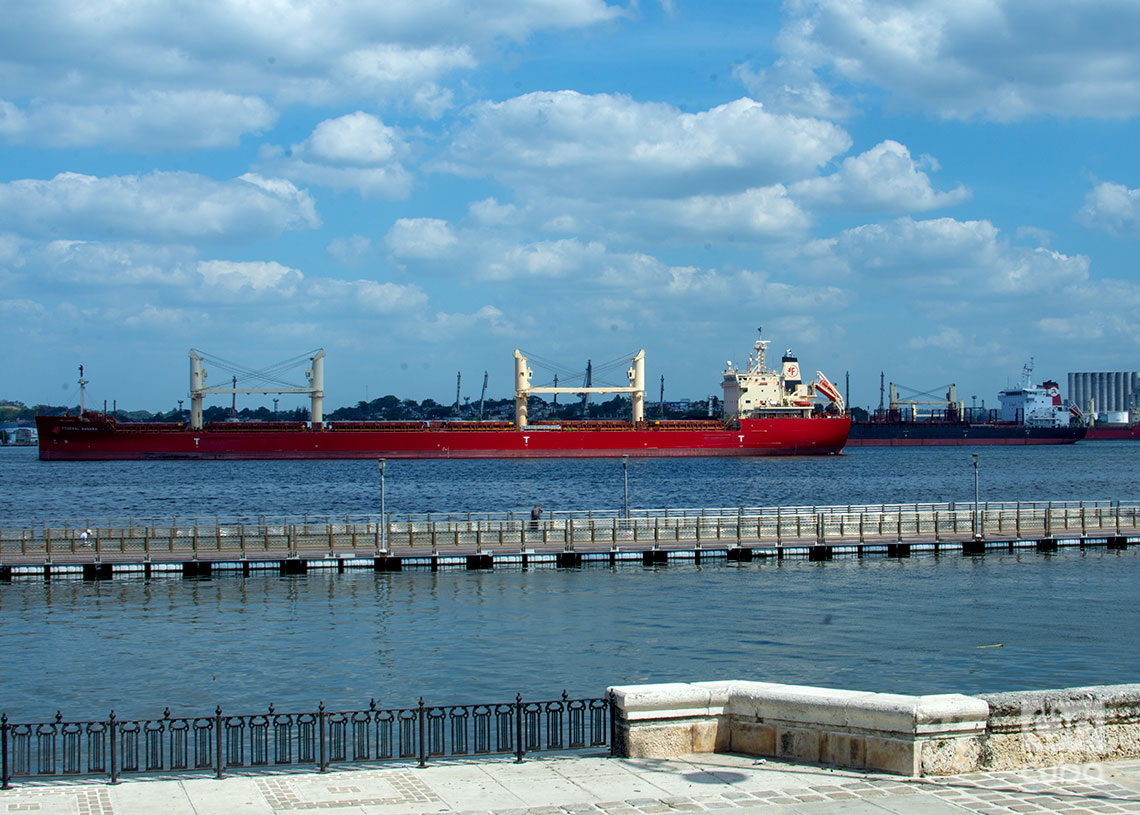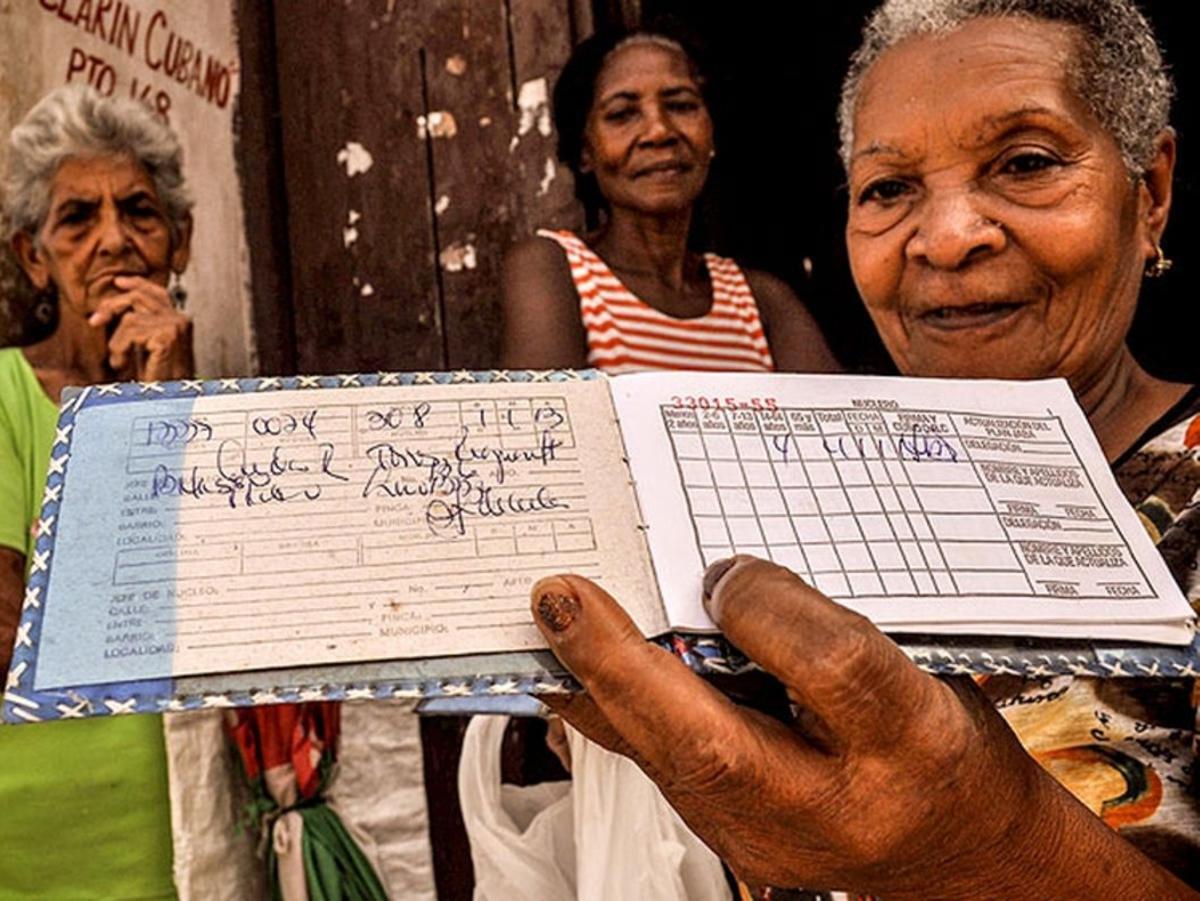President Miguel Díaz-Canel publicly recognized that the states of opinion of Cubans regarding the government’s work “are very critical and very negative”, particularly regarding the situation of the basic food basket, but he reiterated that the fundamental causes of these problems stem from the U.S. sanctions.
“Neither rice, nor coffee, nor peas, they forgot the people.” “It seems it’s a counterrevolution to keep the people upset.” “Things are getting tougher, neither minced meat nor chicken is coming; diet milk for children and sick people has no quality.”
These were some of the comments collected on the networks and that the president read at the beginning of the second program Desde la Presidencia, broadcast this Thursday on the YouTube channel of the Cuban presidency.
Participating as guests in the space, dedicated to the regulated family food basket ― for months fragmented and delayed in most of its products ― were Minister of Domestic Trade Betsy Díaz Velázquez and First Deputy Minister of Foreign Trade Oscar Pérez-Oliva Fraga.
According to Díaz-Canel, the distribution morass reflects once again “the worsening of the blockade that is real” and that is marking both power availability and the lack of liquidity in foreign currency, both scenarios due to Washington’s sanctions and financial persecution.
“It is taking a lot of work to get fuel to the country,” he said, which has repercussions on the food distribution chain so that the products finally reach the more than 12,000 grocery stores on the island.
Likewise, the president attacked the United States for condemning Cuba to a “strategy of economic asphyxiation” complemented by “media intoxication,” through which, he assured, an attempt is being made to solely blame the government for the prolonged crisis suffered by the country.
230 million dollars, every month
The president confirmed that his government barely has room for financial planning and described it as a “titanic task” to seek some 230 million dollars every month to “guarantee the products of the basic food basket.”
“With the money that comes in week after week, decisions have to be made to pay for food. Many times we have ships with food, like right now, and we do not have money to finance them,” admitted the head of state.
“We have two ships of flour, we are looking for financing to pay for that freight, and that this can guarantee the flour so that starting next Monday we can begin to have bread with stability again,” Díaz-Canel illustrated.
Currently, only the milling enterprise in the province of Cienfuegos is producing wheat flour.
The factory delivers about 750 tons of wheat flour daily, which is a third of national consumption in one day, said Minister of Domestic Trade Betsy Díaz.
“56% of the population’s bread has been affected,” said the official.
“Right now we have eleven ships with food in Cuban ports that for financial reasons we had not been able to start unloading,” said First Deputy Minister of Foreign Trade Oscar Pérez-Oliva Fraga.

Cuba on list of state sponsors of terrorism
Pérez-Oliva Fraga argued the consequences of Cuba remaining the U.S. list of state sponsors of terrorism.
“In 2023, five banks, without prior notice, refused to process transactions related to food purchases destined for the regulated food basket. These refusals generated delays that ranged between 40 and 105 days for the products to be shipped to Cuba,” he cited.
Although the United States sells food to the island, given the exemptions allowed by the embargo/blockade, such purchases are subject to specific authorizations from the Office of Foreign Assets Control (OFAC).
This agency, which belongs to the Department of the Treasury, must authorize, in turn, the supplier companies and also the owners of the vessels that transport the goods to the Caribbean country.
“These authorizations are discretionary; therefore, we cannot compromise food purchases in the United States, even in those cases where prices are more advantageous. We always have to have second options to ensure food for the population,” he explained.
Compras cubanas de pollo en Estados Unidos mantienen su repunte a pesar de la crisis
The financial restrictions of the sanctions force Cuba, contrary to international practice, to pay for merchandise contracts in advance in all cases; while the vessels that transport them to the island must return empty, which has an impact on the cost of freight.
Likewise, food purchases from third-country companies that are subsidiaries of U.S. firms are prohibited, according to the official.
“In 2023, to relocate products that in the United States would mean a lower cost, Cuba paid an additional 19,480,000 dollars,” an amount that means “four months of distribution of chicken from the food basket to the population,” Pérez-Oliva Fraga assessed.
In parallel, the global inflationary wave unleashed by international conflicts, among other causes, meant that in 2023, “with an 11% increase in the cost of the regulated food basket, we acquired 7% fewer products,” he correlated.
Immediate future
The head of domestic trade, Betsy Díaz, recognized the disappearance of products and the deficits of others in the regulated food basket, and reported that starting this month, deliveries should be progressively recovered in provinces that have not yet received part of the supplies, such as rice, salt, peas, sugar and baby food.
Regarding milk, the subject of numerous complaints and angry citizen criticism, the official pointed out that it is guaranteed for April and May for the prioritized age groups.
“Soy yogurt or soy milk will be reintroduced in April, as imports are arriving,” she announced.
She also specified that for April all rice is guaranteed and the distribution of chicken, oil and the normalization of bread production are projected.
She added that an additional kilogram of rice will be delivered during the month, donated and free of charge, just like for May.
Llega a Cuba primer lote de 20 mil toneladas de arroz donadas por China
Promoting domestic productions
According to Díaz-Canel, the island’s authorities are committed to “guaranteeing the people the essential levels of food required through regulated distribution using the ration book.”
In the immediate future, the government plans to stabilize deliveries in the country’s grocery stores and achieve the distribution of a full food basket at the beginning of the month.
According to the president, the strategy is to expand national production, substitute imports and with the financial resources that are currently invested in purchases in foreign markets, increase domestic contributions to the food basket.
“This is not something far away. There are already provinces that are achieving it, like Cienfuegos, which has already produced all the beans it needs for the entire year,” said the president as an example.
History of a “ration book”
The ration card, popularly known as the “book,” came with Law 1015 of March 12, 1962.
It then sought to guarantee all Cubans a group of basic products due to the shortage resulting from the breaking of ties with the United States, which was the island’s main market until 1960. This guaranteed minimum quotas at subsidized prices, sometimes lower than the cost of production.
However, with the passing of the years and the successive crises suffered by the island, the “ration book” has been losing weight in the diet of Cubans and frequently there has been speculation about its alleged disappearance, although it is still very necessary for the most vulnerable and lower income sectors.

Currently, although it solves a small part of the food needs of the sectors with fewer economic resources, families must resort to free supply markets, where rampant inflation harms the pockets of the vast majority of the population.
In the program Desde la Presidencia, which was broadcast on national television this Thursday night, Díaz-Canel confirmed that his government’s future plans involve subsidizing people, not products, which is why the ration book could have its time counted. At least, as it has been until now.










